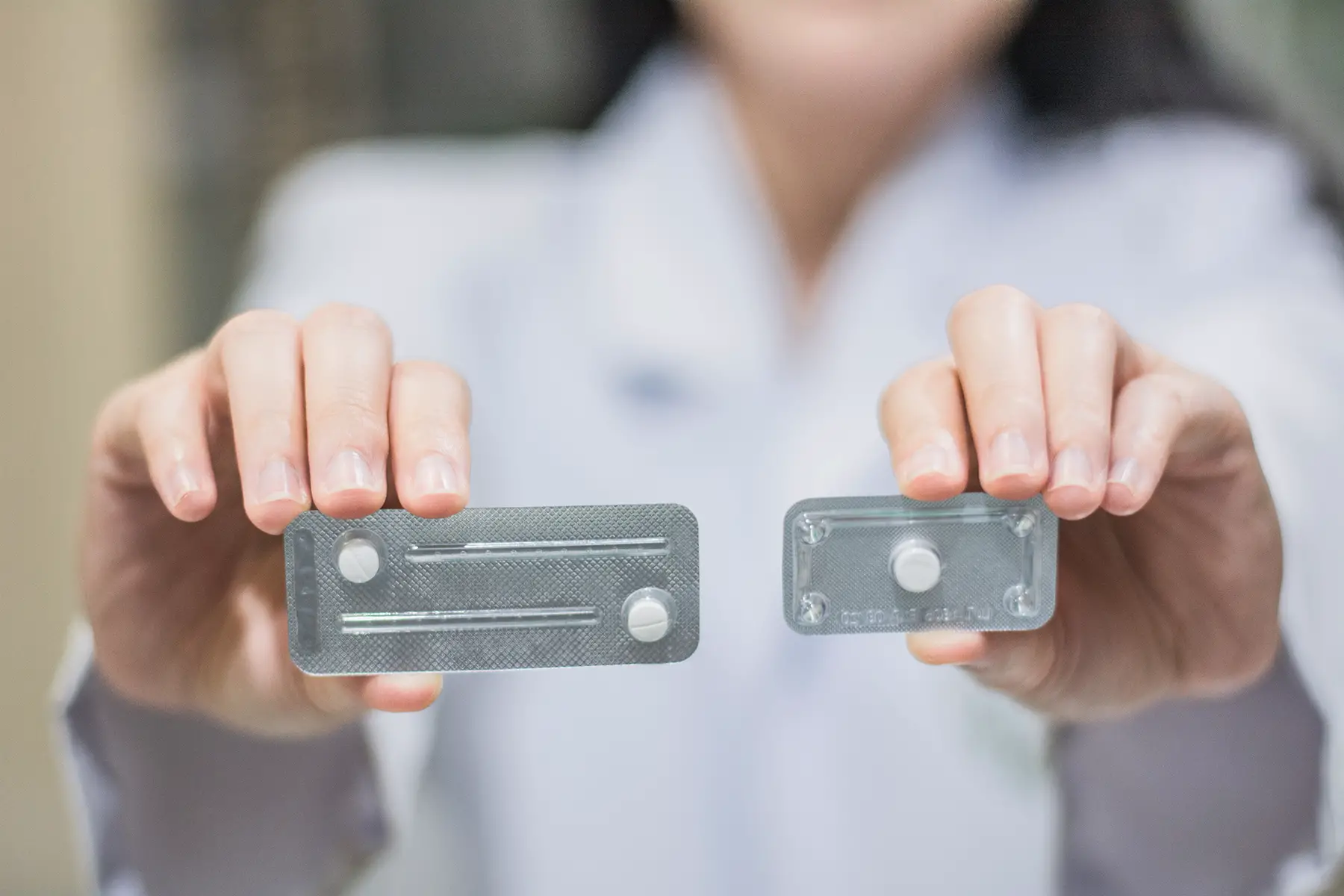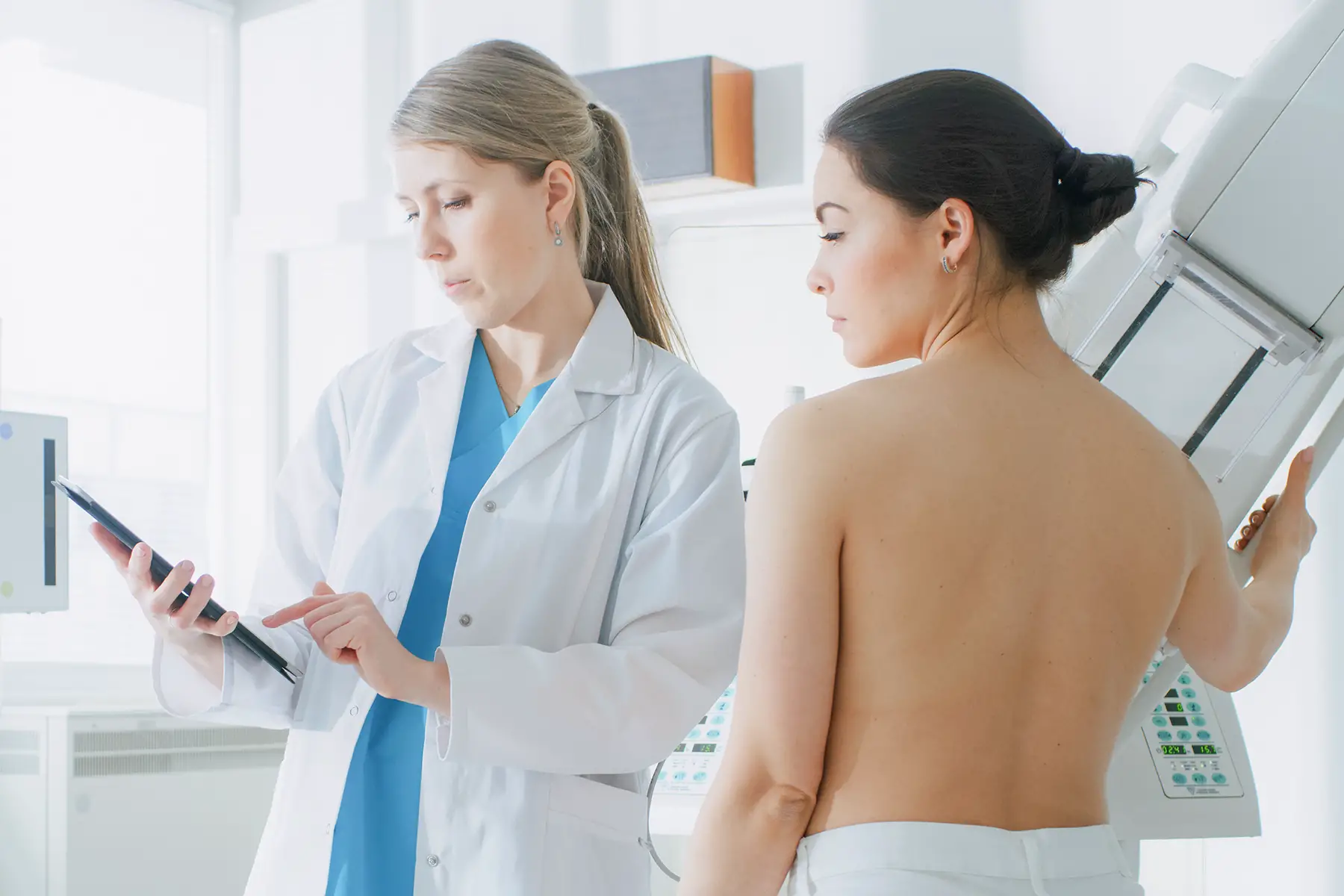For women moving to the UK, one of the first things they might want to look into is healthcare. Essentially, there are two systems available to residents and expats; private, which can be paid for or assessed through private insurance coverage; and public, which is provided by the National Health Service (NHS) and free, depending on your residential status.
This helpful guide explains everything you need to know about women’s healthcare in the UK. You’ll learn all about how to access it, whether via the NHS or the private healthcare system:
- Options for women’s health in the UK
- Accessing women’s health services in the UK
- Insurance for women’s healthcare in the UK
- What the NHS covers
- How to find a gynecologist in the UK
- Women’s sexual health in the UK
- Access to women’s contraception in the UK
- Maternity care services in the UK
- Breastfeeding in the UK
- Fertility treatments in the UK
- Abortion in the UK
- Menopause in the UK
- Cancer screenings in the UK
- Useful resources
Options for women’s health in the UK
Generally speaking, the UK provides high-quality healthcare through the state-funded NHS which guarantees free care for all. It covers everything from ambulance rides and emergency room visits to long hospital stays, surgery, and ongoing treatment. Read our guide on the National Health Service for more information on this.
When it comes to women’s healthcare in the UK, the NHS provides a range of services including doctor’s appointments, obstetrics, gynecology, cervical screenings, and emergency surgery. You can search for the services available in your area on the NHS website.
Despite the quality of care available to women from the NHS in the UK, resources in the public healthcare system are stretched; waiting lists are often long. For instance, it can take three weeks to see your local doctor or 18 weeks to get a non-urgent hospital appointment.
This factor has led some women to take out private health insurance in the UK policies. These can offer quicker access to specialists, better facilities, and much shorter waiting times. We will explain more about this later, but first, who is eligible for free public healthcare in the UK?
Accessing women’s health services in the UK
Women relocating to the UK from a European Economic Area (EEA) country or Switzerland can access free NHS care by using their European Health Insurance Card (EHIC). All patients must show this when they require medical assistance. Women from outside of the EEA, however, must be ordinary residents with indefinite leave to remain.

If you don’t have indefinite leave to remain in the UK, you must have private health insurance. This is an important factor to consider; if you don’t have health insurance, treatments cost 150% of the standard NHS tariff for any care in a hospital. This can be a costly business and you will usually need to pay these fees in advance.
Some of the largest private health insurance companies in the UK include:
Insurance for women’s healthcare in the UK
If you take out health insurance in the UK, this can pay for private medical treatment. Health insurance can also cover a range of treatments that are not available for free on the NHS.
Before you take out a healthcare plan, consider what care and treatments you need your insurance to cover. For example, if you plan on having children you might want it to include obstetrics and gynecology.
Covering serious illnesses like cancer or treatment for pre-existing conditions like asthma could make your private medical insurance more expensive. But it could be worth it if you need private healthcare for these conditions.
Private health insurance policies come with two main costs: the premium and the excess. They’re generally available on both a personal and family basis. The premiums will depend on your level of cover, lifestyle, age, and any pre-existing medical conditions that you might have. Healthcare plans usually operate on an excess basis, meaning you will need to pay a proportion of the cost. Many UK employers also include subsidized or tax-only healthcare cover in their benefits packages.
What the NHS covers
A wide variety of care and treatment is available to women, for free, on the NHS. If you require medical advice for specific women’s health issues, you can attend a well-woman clinic. Here, you may see a female doctor or practice nurse, who provides advice on gynecology, cervical screenings, menopause, and emergency contraception. You can also discuss your general health with the doctor or nurse.

Some public hospitals also provide well-woman clinics. These don’t require a referral letter from your GP. Ask your local surgery for more information.
If neither your GP surgery nor local hospital runs a well-woman clinic, however, many practice nurses can give breast cancer awareness advice, carry out cervical screening tests, and provide you with information and advice about contraception and hormone replacement therapy.
Private health organizations also run well-woman clinics and carry out extensive health checks for a fee. You can find details of private health clinics by searching online.
How to find a gynecologist in the UK
Gynecology services are available on the NHS. You can ask your GP for a referral to see one. Your GP may, however, ask you to try a variety of treatments before they refer you. You can search for gynecology services in your local area on the NHS website.
If you receive a referral to a gynecologist by your GP, you can choose which specialist you see and which hospital you attend. Once you pick a specialist, you can book an appointment through your GP or online through the NHS e-Referral Service. You can also phone the NHS e-Referral Service line on 0345 608 8888 (open Monday to Friday, 08:00 to 20:00; weekends and bank holidays, 08:00 to 16:00. Under the NHS, you have the right to start treatment, led by a consultant, within 18 weeks. You can also wait longer if it’s clinically right for you.
If you want to see a private gynecologist, you are still must get a letter of referral from your GP. Private health insurance normally covers gynecology care; check with your insurance provider first. The cost of private gynecology services can amount to a hefty sum, depending on what care and treatment you require.
Women’s sexual health in the UK
Sexual health services are part of women’s healthcare in the UK. They are free and available to everyone in the UK. Services and advice may be available from sexual health clinics (which can also be called family planning, genitourinary medicine (GUM), or sexual and reproductive health clinics), GPs, some pharmacies, and young people’s services.
A sexual health clinic can give you advice about both sexually transmitted infections (STIs) and contraception. Here, you can receive information on how to protect yourself from STIs, get tests for them, and access contraception.
If you visit a sexual health service for the first time, you’ll fill in a form with your details. During your consultation, they may ask personal questions, such as your medical and sexual history, what methods of contraception you use, and other questions about your sex life. If you need STI tests, you may need to provide a blood or urine sample. Depending on what the problem is, some women may also need a vaginal exam; men may need to have samples taken from their penis.
All information regarding your visit is confidential and isn’t shared outside the sexual health service without your permission. If you were sexually assaulted, you may be offered a specialist service and help with reporting the assault to the police.
Access to women’s contraception in the UK
There are currently 15 methods of birth control available on the NHS. These are free to anyone who is eligible for public healthcare, even if they are under 16 years of age.
These methods include:
- Caps or diaphragms
- Combined pill
- Condoms
- Contraceptive implant
- A contraceptive injection
- Contraceptive patch
- Female condoms
- IUD (intrauterine device or coil)
- IUS (intrauterine system or hormonal coil)
- Natural family planning (fertility awareness)
- Progestogen-only pill
- Vaginal ring
- Female sterilization
- Male sterilization (vasectomy)
Once you read all the information about these birth control methods, how they work, their effectiveness, and possible side effects, you can go to your GP or local contraceptive (or family planning) clinic to discuss your options and decide on the most suitable one for you.
You can get all contraception free of charge, even if you are under 16, from contraception clinics, sexual health or GUM (genitourinary medicine) clinics, some GP surgeries and young people’s services, and pharmacies in your local area.
Emergency contraception
There are two methods of emergency contraception available for free on the NHS:
- The emergency contraceptive pill – or morning-after pill – known as Levonelle or ellaOne
- The copper IUD (intrauterine device, or coil)
You can get both Levonelle and ellaOne free of charge from contraception clinics, brook centers, most sexual health or genitourinary medicine (GUM) clinics, most NHS walk-in centers, and minor injuries units, most GP surgeries, and some hospital accident and emergency (A&E) departments.

You can also buy Levonelle and ellaOne from most pharmacies, and from some organizations such as BPAS or Marie Stopes. Levonelle can be taken within 72 hours of having unprotected sex; it’s most effective when taken within 12 hours of intercourse. Prices vary, but it is likely to cost around £25. You need to be 16 or over to buy Levonelle; girls under 16 years of age can only get Levonelle with a prescription from their doctor.
The IUD is available from contraception clinics, brook centers, most sexual health or GUM clinics, and most GP surgeries. This is the most effective form of emergency contraception; however, because it’s placed inside your womb, it must be fitted by a doctor or nurse within five days of having unprotected sex or up to five days after you ovulate. You can keep the IUD in as your regular method of contraception or a doctor or nurse can remove it during your next period. You can find out more about the morning-after pill and IUD on the NHS website.
Maternity care services in the UK
The NHS provides care throughout the three stages of giving birth in the UK: prenatal, delivery, and aftercare. The NHS is the standard-bearer for women having a baby in the UK, but home births are also possible, as are private clinics. If you want to go private or aren’t entitled to receive free NHS treatment in the UK, you need private health insurance to cover maternity costs.
You can find out everything you need to know about giving birth in the UK in our UK pregnancy guide, including information about registering your baby in the UK, gaining British citizenship, and UK maternity and paternity leave and pay.
Breastfeeding in the UK
The UK currently has one of the lowest rates of breastfeeding in Europe. Only 34% of babies receive breast milk at six months, in comparison to 49% in the US and 71% in Norway.
Research shows that breastfeeding rates in the UK decrease markedly over the first weeks following birth. Figures in 2015/16 showed that while almost three-quarters of mothers started breastfeeding (73.1%), this fell to 43.2% at six to eight weeks.

This decline may be due to mothers experiencing practical problems in establishing breastfeeding, and failing to access or receive adequate practical support. As a result, many turn to baby formula which carries its own set of health concerns. Societal attitudes towards breastfeeding may also have an impact on these figures, with many women uncomfortable about feeding in public or in the presence of peers and family members.
Read our article on views on breastfeeding around the world for more information on this topic.
Fertility treatments in the UK
The NHS offers IVF treatment for women who meet specific criteria, established by the National Institute for Health and Care Excellence (NICE). If tests show that IVF is the only treatment likely to help a woman get pregnant, then she’ll receive a referral straight away.
The criteria specify that women under the age of 40 should receive three cycles of IVF treatment on the NHS if they:
- Have been trying to get pregnant through regular unprotected sex for two years
- Have not been able to get pregnant after 12 cycles of artificial insemination
If a woman turns 40 during treatment, the current cycle will be completed, but further cycles will not be offered.
The NICE guidelines also state that women aged between 40 and 42 should be offered one cycle of IVF on the NHS if all of the following criteria are met:
- They have been trying to get pregnant through regular unprotected sex for two years, or haven’t been able to get pregnant after 12 cycles of artificial insemination
- They’ve never had IVF treatment before
- They show no evidence of low ovarian reserve (where eggs in your ovaries are low in number or quality)
- They have been informed of the additional implications of IVF and pregnancy at this age

The provision of IVF treatment also varies throughout the country and often depends on local CCG policies. For example, in some areas of England, women over the age of 34 are being automatically refused IVF treatment on the NHS. Ask your GP or contact your local CCG to find out what the criteria for NHS-funded IVF treatment are in your area.
Alternatives for fertility treatments in the UK
If you don’t meet these criteria, you may need to pay for private treatment at a clinic. You may contact some clinics directly without seeing your GP first, but others may ask for a referral. The cost of private treatment can vary; generally speaking, one cycle of IVF can cost £5,000 or more. There may be additional costs for medicines, consultations, and tests.
Some people consider having IVF abroad, but there are a number of issues you need to think about, including your safety and the standard of care. Clinics in other countries may not be as regulated as they are in the UK.
You can read about private fertility treatment and the issues and risks associated with fertility treatment abroad on the Human Fertilisation and Embryology Authority (HFEA) website. You can also search for HFEA-regulated fertility clinics in the UK.
Abortion in the UK
Abortion is legal under most circumstances in England, Wales, and Scotland, based on the Abortion Act 1967. It can legally be carried out before 24 weeks of pregnancy and after 24 weeks in certain circumstances; for example, if the mother’s life is at risk or the child would be born with a severe disability. Abortions can only be carried out in an NHS hospital or a licensed clinic, and are usually available free of charge on the NHS.
Abortion was illegal in Northern Ireland until 2019 when laws were liberalized and the act itself decriminalized. That said, changes in the law only allow abortion during the first twelve weeks of pregnancy, and later in cases where the pregnant woman’s life or health is at risk, or in the cases of a fatal fetal abnormality. However, women who are more than twelve weeks pregnant can travel to England for safe and legal abortion care.
Getting an abortion in the UK
Most abortions in England, Wales, and Scotland occur before 24 weeks of pregnancy. They can be carried out after 24 weeks in certain circumstances – for example, if the mother’s life is at risk or the child would be born with a severe disability.
Abortions can only be carried out in an NHS hospital or a licensed clinic. They’re usually available free of charge on the NHS.
There are three main ways to get an abortion on the NHS:
- Contacting an abortion provider directly (the British Pregnancy Advisory Service (BPAS), Marie Stopes UK, and the National Unplanned Pregnancy Advisory Service (NUPAS) can tell you about services in your area)
- Speaking to your GP and asking for a referral (your GP should refer you to another doctor if they object)
- Visiting a contraception clinic, family planning clinic, sexual health clinic, or genitourinary medicine (GUM) clinic and asking for a referral. Waiting times can vary, but you shouldn’t have to wait more than two weeks from your initial appointment.
You may also pay for an abortion privately. Costs for private abortions vary depending on the stage of pregnancy and the method used.
All women requesting an abortion in the UK should be offered the opportunity to discuss their options with a pregnancy counselor, a GP, a counseling service at the abortion clinic, or organizations such as the FPA, Brook (for under-25s), BPAS, Marie Stopes UK, and NUPAS. Some crisis pregnancy centers claim to provide impartial advice but often do not.
If you don’t want to tell anyone about your unwanted pregnancy, your details remain confidential. If you are under 16, your parents don’t usually need to be told. In the UK, information about abortion does not go on your medical record.
Menopause in the UK
Women aged between 45 and 51, who experience symptoms such as hot flushes, night sweats, vaginal dryness, anxiety, and difficulty sleeping, can talk to their GP, who can usually confirm whether they are menopausal based on these signs. If you are under 45, your GP may also carry out a blood test to measure your hormone levels.
Treatments for menopausal symptoms are provided for free, under the NHS, and can include hormone replacement therapy, vaginal estrogen creams and lubricants, and cognitive behavioral therapy. Your GP may also suggest lifestyle changes such as eating a healthy, balanced diet and exercising regularly to maintain a healthy weight and stay fit and strong.
In some cases, your GP may refer you to a menopause specialist if your symptoms don’t improve after trying treatment or if you’re unable to take HRT. Find out more about treating menopause.
Cancer screenings in the UK
In 2015, the most common form of cancer in women in the UK was breast cancer, accounting for almost a third (31%) of all female cases. The next most common cancers in UK females are lung cancer (12%) and bowel cancer (11%). Breast, lung, and bowel cancers together account for over half (54%) of all new cases in women.
How to get a cervical cancer screening
Screening for cervical cancer is provided for free under the NHS. A cervical screening (or smear test) is not a test for cancer, but rather a test to help prevent cancer, and is conducted by taking a small sample of cells from the cervix and checking for abnormal changes. Finding abnormal changes early means they can monitor or treat them so they don’t turn into cervical cancer.
All women between 25 and 64 in the UK receive an invitation letter asking them to have a cervical screening. The timing of this letter depends on the age of the woman; for example, women between 25 and 49 should have a smear test every three years, while those between 50 and 64 only receive invitations every five years. Contact your GP surgery to book an appointment.
Most cervical screening is done in a GP surgery by a female nurse or doctor. In some parts of England, you may go to a local sexual health clinic instead. You will get your results by letter, usually in about two weeks after the screening. This letter explains what your results mean.
Most people get a normal result don’t require further tests. However, if the results are unclear, you may need to come back in three months to have the test again. Your GP will guide you through the entire process and advise you on the next steps.
How to get a breast cancer screening
Breast screening aims to find breast cancers early and is offered every three years to all registered women aged between 50 and 71. You may be eligible for breast screening before the age of 50 if you have a very high risk of developing breast cancer, for example, if you have a family history of the disease. You can arrange an appointment by contacting your local screening unit or GP.
The screening is carried out using an X-ray called a mammogram which can spot cancers when they are too small to see or feel. After your breasts have been X-rayed, the mammogram is checked for abnormalities. The results are sent to you and your GP no later than two weeks after your appointment. If the mammogram is unclear, you will be called back for further assessment.

If you’re worried about breast cancer symptoms, such as a lump or area of thickened tissue in your breast, or you notice that your breasts look or feel different from what is normal for you, then you don’t have to wait to be offered a screening, and you can see your GP as soon as you can.
How to get screened for ovarian cancer
Currently, there is no national screening program for ovarian cancer in the UK. This is because there isn’t a test that reliably picks up ovarian cancer at an early stage. There has been a lot of research to develop a screening test for ovarian cancer, but there hasn’t been much success so far. The two tests used most often (in addition to a complete pelvic exam) to screen for ovarian cancer are a transvaginal ultrasound (TVUS) and a CA-125 blood test.
There are no recommended screening tests for ovarian cancer for women who do not have symptoms and are not at high risk of developing ovarian cancer. However, some organizations state that TVUS and CA-125 may be offered to screen women who have a high risk of ovarian cancer due to an inherited genetic syndrome such as Lynch syndrome, BRCA gene mutations, or a strong family history of breast and ovarian cancer. Still, even in these women, it has not been proven that using these tests for screening lowers their chances of dying from ovarian cancer.



